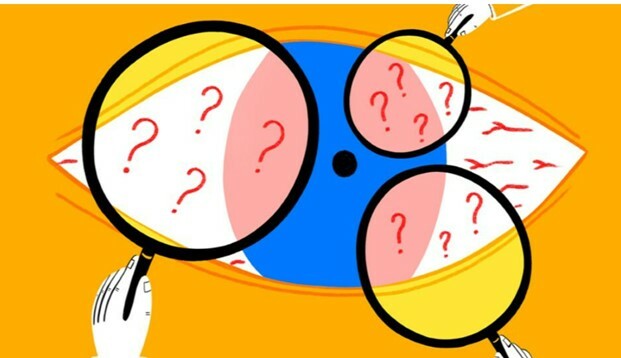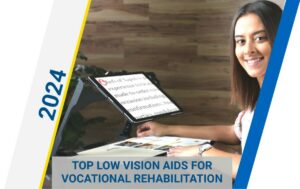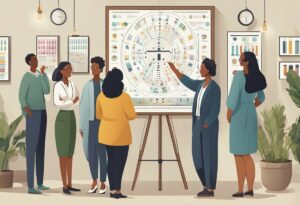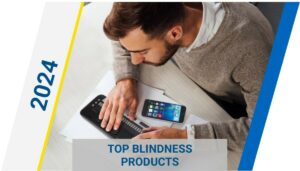Macular Degeneration and Glaucoma: What’s the Connection?

Understanding the connection between Macular Degeneration and Glaucoma?
Macular degeneration is the leading cause of vision loss in the United States, ahead of glaucoma and cataracts combined. People with macular degeneration do not usually go completely blind. However, they do have trouble seeing faces, driving, reading, writing, doing close work, or any other activity that requires sharp central vision.
What is glaucoma?
Glaucoma is an eye disease that damages your optic nerve. It occurs when pressure builds up in the eye. This leads to the loss of side (peripheral) vision and blind spots. It causes no pain and can affect 1 or both eyes. Left untreated, it causes permanent blindness.
Who has macular degeneration and glaucoma?
About 10 million people in the United States have some form of age-related macular degeneration (AMD). About 3 million people have glaucoma. Doctors do not exactly how many people have both conditions. One small study in Sweden found 1 out of 5 of people enrolled had both AMD and glaucoma.
A larger U.S. study found that people with glaucoma and a retinal disease like AMD had a 2-fold increase in blindness and low vision. Of 5,154 people in the study who had glaucoma, 297 had a form of macular degeneration. Diabetic retinopathy was much more common in these people.
There are some similarities in who is more likely to develop AMD and glaucoma. Both conditions are more common in people who are:
- Over age 55 to 60
- Have a family history of the disease
- AMD is more common in white people, while glaucoma is more common in Black people
- People with diabetes are 2 times more likely to develop glaucoma
- Smokers have double the risk of developing AMD
Recommended lifestyle changes overlap
If you have both macular degeneration and glaucoma, your doctor will probably suggest several lifestyle changes. How you eat, exercise, and live your daily life can contribute to better vision and mental health. The most common suggestions are:
Seeing your ophthalmologist on a regular schedule helps them closely follow your case. This allows your doctor to spot changes in your vision sooner. There is no cure for AMD or glaucoma, but early detection can preserve your sight for longer.
This article was published on March 30, 2022 by MacularDegeneration.net. To read the original article, you can visit this link – https://maculardegeneration.net/living/md-glaucoma-connection
How Can We Help You Or A Loved One
Mr. Magnifier: If you or a loved one have been diagnosed with Macular Degeneration, our Mr. Magnifier handheld magnifiers are the perfect 1st Step for anyone with Macular Degeneration! Here’s a link to very helpful information, including a free Magnification Guide – https://nelowvision.com/mr-magnifier-lp/
Free Low Vision Guide: If you or a loved one has been diagnosed with Macular Degeneration, we have created this 12-section Low Vision Guide “Now What? – a free resource to help you or loved one who has been diagnosed with Macular Degeneration. <Click here to download a PDF of the entire report.>
Technology: We offer the latest and most advanced low vision and blindness technology supported by world-class personal service. We have nearly 100% of all major electronic low vision, blindness, and software products. Our complimentary, no-obligation demonstration on any of our products will make sure our clients are getting the right product for their specific eye condition.
Training: Technology rehabilitation training services for people with low vision and blindness. We go to our clients – home, school, or business – training where they need it – from caring assistive technology professionals.
Smart Home: Our Smart Home services can help design a solution to help our clients or their loved ones remain independent by using the many features of a Smart Home. <Click here to learn more.>
Bring Hope: We Bring Hope to people who are blind or visually impaired through the many products and services we offer. <Click here to learn more about our Bring Hope services.>
Convenience: Our two(2) state-of-the-art technology showrooms are a wonderful resource, showcasing a variety of leading electronic low-vision magnifiers and blindness products. Our clients schedule an appointment with one of our Technology Specialists who can help you find the right technology, training, and care solution. If our client cannot come to us, our staff can even drive out and bring our Vision Store to them, for a no-obligation product demonstration.
To learn more about how we can help you or a loved one, contact a Technology Specialist at New England Low Vision and Blindness today. You can call our toll-free number 888-211-6933 or email us at info@nelowvision.com and we will be happy to help.



